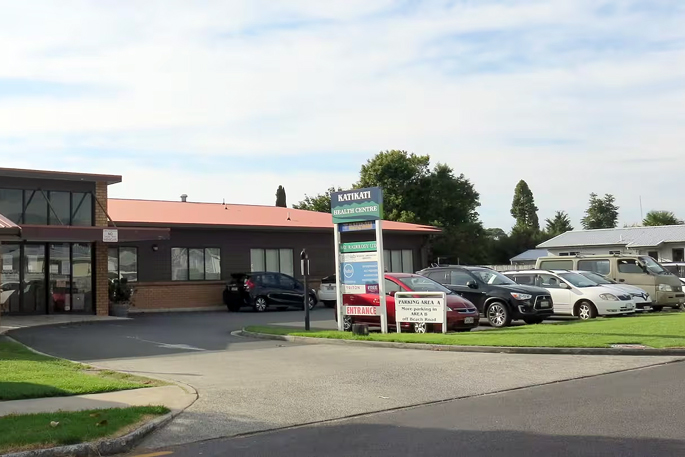Wait times for an appointment at Katikati Medical Centre can be weeks long and while a new doctor should help the situation, the centre’s clinical director says the underlying problems are industry-wide.
Clinical director and GP Vicky Jones says wait times for routine appointments range from a few days to several weeks depending on the doctor.
“Wait times across the motu have blown out in many places to as long as six weeks.”
She says they now have a new doctor whose wait times are shorter and who is accepting new patients.
Doctors in primary healthcare services are expressing their concerns about the workforce and funding crisis.
Vicky is concerned general practices in New Zealand are in danger of becoming insolvent, although that's not an immediate concern for Katikati Medical Centre.
“At Katikati Medical Centre we really do not want this to happen and are working as efficiently as we can with the resources available.”
She says improving terms and conditions to match those of hospitals is needed to attract more doctors into the GP practices.
Primary health organisation general practices receive a capitation payment based on the number of patients enrolled.
This payment has not increased in line with inflation, says Vicky.
“And we all know that costs have escalated. This capitation payment used to contribute towards approximately four visits a year, but now only pays towards about two and a half visits.”
The funding model for GPs is based on time spent in front of patients — administration work is unpaid.
“This time is usually done in the evening and at weekends so that appointments remain available in the day. Unsurprisingly, many doctors are now electing to go to Australia where conditions generally are far more favourable.”
More than half of Kiwi doctors will retire in the next decade, says Vicky..
“We are not training enough doctors to replace them, and the current immigration system is clunky and costly. Compounding this, a much-smaller proportion of doctors are choosing to become GPs because employment terms and conditions are far better in the hospital.”
Health New Zealand-Te Whatu Ora living well director Martin Hefford says it's aware of the pressure on the GP workforce and is working to address those pressures through a “blend of targeted international recruitment and domestic training”.
Health NZ has made investments to increase the number of general practitioner and nurse practitioner training placements through initiatives such as the comprehensive primary and community care teams, says Martin.
“Cumulatively, increases have been at a similar rate to the CPI. Additionally, Health NZ has taken some steps to improve the way we fund general practice capability and capacity. Funding for all primary and community health services, including general practice, increased by five per cent from July 2023.
“We acknowledge that the current capitation funding system for general practice has limitations as it does not include important factors such as socioeconomic status or ethnicity. We also acknowledge the workforce pressures that primary care teams are facing.”



2 comments
You welcome say Labour
Posted on 10-04-2024 08:38 | By an_alias
The direct result of mandates and lockdowns for all to see.
an_alias
Posted on 10-04-2024 15:02 | By This Guy
What's National doing to help the situation, exactly? Cuts, cuts, cuts and more cuts are not going to make things any better (sure helping boost the exodus of skilled workers to Aus) - typical right-wing policy though "Tax cuts for the wealthy and austerity for everyone else"
Leave a Comment
You must be logged in to make a comment.